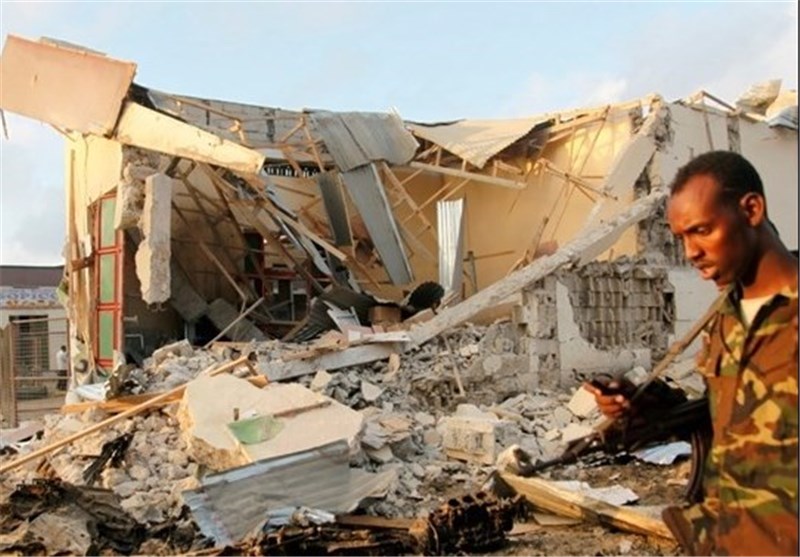At least 20 innocent lives have been lost as a result of terror attacks that have been carried out in the last two months by suspected Al Shabaab militants.
An analysis by Sunday Nation shows that the terror group has this year alone launched 16 attacks which all targeted North Eastern and Coast regions.
The attacks happened in Garissa, Mandera, Wajir and Lamu counties between January and February even as the Al-Qaeda-affiliated group ramped up their campaigns in the country.
EIGHT ATTACKS
In the attacks, Garissa county suffered the most as it recorded eight attacks that resulted in the deaths of 10 people including teachers, pupils and security officers.
Of the eight attacks in Garissa, six happened in Ijara sub-county, which has this year appeared to be the hotbed of the attacks in the northern region.
Two others happened in Daadab sub-county, where two schools were hit and teachers and pupils died.
In Lamu county, four attacks were reported that resulted in the deaths of seven people, among them three US servicemen who died during the January 5 attack at their Manda Bay military base. A resident was also killed.
Others killed in Lamu were three passengers who were in a bus that was travelling from Mombasa on January 2.
In Mandera, where three attacks happened, three passengers were killed after their bus was sprayed with bullets on February 19 as it headed to Nairobi. In Wajir, only one attack happened with no casualty reported.
15 INJURED
Meanwhile, in the period under review, 15 people were injured and properties including three communication masts, two schools and at least eight houses destroyed.
The increase in attacks early this year has set a worrying trend compared to last year, where between January and February only three attacks were reported.
In 2019, the three attacks were all reported to have happened in January with the major one being the Dusit D2 attack which claimed the same number of deaths as reported this year.
In February last year, no attack was reported compared to this year where nine attacks have been reported.
By the end of last year, however, 83 lives had been lost, according to a report by the Centre for Human Rights and Policy Studies (Chrips).

56 FATALITIES
The data by Chrips Terror Attacks and Arrests Observatory report, reveals that the deaths reported last year increased by 20 per cent from the 56 fatalities which occurred in 2018.
The report further shows that the highest number of attacks in 2019 took place in Mandera and Wajir where nine attacks were reported in each county.
In last year’s report, Garissa came third with eight attacks being recorded.
The move has since resulted in an uproar from northeastern region leaders who have faulted the TSC over its decision.
The matter is still yet to be settled even as Education CS George Magoha proposes that students from the region should be enrolled in teaching colleges so that they can teach in the region.
TARGETING LOCALS
As the government deliberates on the education matter, it says it has upped its game to deal with the terror activities, especially in the North-Eastern region.
In its plan, the government is targeting locals who are harbouring the militants.
Interior Cabinet Secretary Fred Matiang’i says the government has also reviewed its security strategy across the region as it focuses on reactivating the nyumba kumi initiative.
Also, on the government plans is to tackle the war against contraband and smuggling of goods which has been identified as the major direct source of revenue to the terrorists.
He said that the illicit trade has been generating direct and indirect revenue for terrorists to advance their activities in the country, and will, therefore, be dealt with so as to counter the financing of terrorist activities.
With the government grappling to deal with the menace, US Africa command (Africom) which is a major partner of Kenya in the war on terror, says it has taken measures to increase its force protection postures and hardened its operating location.
AFRICOM
“Al-Shabaab, an al-Qaeda affiliate, is an evil and remorseless enemy of peace, stability, and freedom in East Africa and threatens the very way of life of people there, as well as Americans and US interest in the region and abroad.
Alongside its partners Africom continues to take action to prevent Al Shabab from planning and conducting external attacks,” the head of Africom General Stephen Townsend said in a recent statement.
He said the command has observed tangible progress in Somalia over the past decade.
The latest report by Armed Conflict, Location and Event Data indicates that Al-Shabaab has killed over 4,000 civilians in the last decade, with a majority being in Somalia.
“US Africa Command will continue to support our African and European partners in the fight against Al-Shabaab. It is important to impact their ability to threaten peace and security in East Africa and prevent their threats against the US from being a reality,” he added.
EXPULSION
The combined efforts by US and Kenya soldiers in dealing with Al Shabaab comes even as it emerged that the terror group is currently faced with wrangles between its senior leaders.
The differences between the Al Shabaab leadership has since seen the expulsion of its two senior commanders Bashir Qorqab and Mahad Karate by their ailing senior, Ahmed Diriye.
Reports indicate that the group’s commanders have disagreed along clan lines and sharing of resources.
A section of the group has also protested against over-taxation and unfair treatment of its clan.

